Functional Health & The Pelvic Floor
You’ve heard us talk all about the standard factors that lead to pelvic floor dysfunction which can include tightness, weakness, nerve injuries and beyond. In this blog post we are opening the pathway to the consideration of the approach of functional health and the impact having balanced health throughout the body can improve pelvic floor issues such as prolapse, incontinence, pain, and scar tissue. Here are some of the major areas that are linked into the functional health realm that could be affecting your pelvic floor: constant stress, poor gut health, poor sleep, lack of exercise, pregnancy/postpartum, infection, and hormonal birth control.
Sleep
Good quality sleep is an important part to recovery throughout our body for even our every day activities. Sleep is the time when our body is regenerating, recovering, and preparing for activity for the next day. When we don’t get enough good quality rest and recovery time, our body stays in a constant state of stress (more on signs of this below). Without proper sleep, your body can’t recover from the stress of the previous day which starts off your next day with even less ability to handle stressors such as work, exercise, and life. This launches into a vicious cycle that continues to cause more stress while simultaneously making your body less able to manage stress.
Signs that you may need to evaluate your sleep and stress recovery quality are: difficulty falling asleep, difficulty staying asleep, or waking up and not feeling well rested. You may be sleeping for 8 hours per night, but how can you determine the quality of that rest? One way we can get a better look at rest quality is HRV (Heart Rate Variability) Testing. This test can help to identify events or habits throughout your day that might be affecting your sleep quality or ability to recover overnight. Things that might be affecting your ability to get a good night’s sleep are: hormones, alcohol, chronic stress, strenuous exercise, nutrition, or screen time.
How this relates with pelvic floor: Poor sleep quality or poor recovery can lead to more stress and less ability to handle that stress. Because of this, your body finds other ways to cope such as holding tension in your pelvic floor, neck muscles, or jaw. People who commonly hold stress in these places, tend to have overactive (tight) muscles with poor blood flow and increased inflammation.
For the pelvic floor, overactivity leads to pain, discomfort with intercourse, as well as bowel and bladder dysfunction. These are all things that we treat in Pelvic Floor PT all the time, however, it is also important to treat the root of the issue to help with long term management of these symptoms.
Gut Health
There are several factors that impact gut health every day including digestion, ingredient quality, and gut bacteria. Good digestion is a big part of having good gut health! If food isn’t being broken down properly, there is more demand on the intestines to break food down. The intestines’ main job is to pull nutrients out of the digested food particles and absorb them into the body. If the intestines are distracted by helping with food digestion, nutrient absorption is less successful and means you aren’t getting everything you need out of your food. Poorly digested food particles are also damaging to the lining as they pass through the lower gastrointestinal (GI) tract.
Another important factor of gut health is the quality of the ingredients you consume. If your diet consists highly of processed foods, then you will be taking in more chemicals than if you ate primarily whole foods. These chemicals can create inflammation within the gut. They can also make the gut lining more permeable. Permeability allows larger particles to pass through that shouldn’t normally pass through (such as chemicals). This can then increase inflammation within the entire body.
And then the last step is the gut bacteria, called the microbiota. These are your “good bacteria” that live inside of your gut. It’s not fully understood yet the degree that these influence body systems but research suggests that they communicate to the brain through the vagus nerve (one of our cranial nerves) and can impact hormones and organ function. Mauro, 2019, found that by altering the gut microbiota, they were able to decrease the symptoms of PCOS and decrease inflammation levels.
How this relates with pelvic floor: Having more inflammation throughout your body as a result of poor gut health can lead to increased inflammation at the pelvis and in the pelvic floor. Inflammation can contribute to pelvic floor muscle overactivity which causes a whole new set of symptoms. Some symptoms that might be stemming from poor gut health AND pelvic floor dysfunction are constipation, fecal or urinary incontinence, and generalized pelvic pain.
Stress
If you are like most people, you probably downplay the impact of stress and just accept stress as part of life. However, stress can be a major factor in whole body health and can be completely managed. When someone is experiencing a stressful situation, their body produces cortisol, the stress hormone. When the body is in a prolonged state of stress the area that emits cortisol shrinks because there is too much cortisol in the body. Unfortunately, the body still creates more and more cortisol because the stressful situation hasn’t been removed, so this vicious cycle continues. Cortisol triggers the “fight or flight response”. High cortisol levels can lead to rapid weight gain, increased blood pressure, mood changes,
Think of it from an evolution standpoint. If you were about to get eaten by a bear, your body would produce the hormones necessary to help you survive a bear attack rather than reproduce at that moment. In the short-term, this is helpful. However, if stress is long-term or chronic, this can impact our daily bodily functions. Working on how well your body manages it’s stress responses and how it recovers after those situations can help restore better balance between your sex hormones and cortisol.
The great news is that all of these factors can be addressed in order to help optimize your health. There are certain tests that you could do to test for some of these factors such as heavy metals testing, cortisol testing and food sensitivity testing. However, testing is not considered the gold standard as there is a sizable amount of error with testing. The gold standard is to remove the possible factors and monitor symptoms.
How this relates with pelvic floor:
Being in a chronic stress or “fight or flight” state can lead to increased muscle tension throughout the body, including the pelvic floor muscles. Increased tension in the muscles can lead to decreased blood flow and therefore increased inflammation which can likely progress to pain and incontinence.
Lack of Exercise
It can be difficult to make time for exercise in our busy day to day lives, but regular physical activity is an important component to optimizing your health. Exercise actually puts our body into a period of good stress, which helps your body learn to manage periods of stress more efficiently. Without the good stress, your body is less equipped to handle bad stress.
Cardio or aerobic exercise is important for managing weight gain. Weight gain adds more pressure to the pelvic floor and causes pelvic floor dysfunction such as prolapse, incontinence, or pelvic pain. Strength training also plays a role because we need a strong core and other surrounding muscles to support the pelvis. Hip muscle weakness and core weakness force the pelvic floor to overcompensate and lead to tightness of these muscles.
How this relates with pelvic floor:
Exercise, both cardio and strength training, are important for maintaining a healthy pelvic floor! Cardio/regular activity has many benefits, including weight management, stress reduction, and encourages more regular bowel movements.
Pregnancy/Postpartum
Your body undergoes a LOT of changes in the nine months of pregnancy as well as the months after you have your baby. There are changes on a bigger level, such as your muscles and bony pelvis alignment, or on a smaller level, your micronutrient levels and hormones.
Baby depletes nutritional/micronutrient stores during pregnancy, so oftentimes postpartum women are deficient in many things. In particular, B vitamins, omega 3 fatty acids, and iron are most affected during pregnancy and postpartum. These deficiencies are so drastic, that not even the healthiest of diets could replenish the levels needed for your body to function ideally. Signs of these deficiencies are chronic fatigue, anxiety, depression, GI issues, or abnormal blood work. Talk to a trusted healthcare provider to determine the best way for you to replenish your nutrient levels in the postpartum period.
How this relates with pelvic floor:
Having balanced nutrient levels can affect how the pelvic floor muscles function. Badalian 2010, found that higher levels of vitamin D was associated with lower risk of pelvic floor issues. GI disturbances have also been linked to increased constipation and overactivity (or tightness) of the pelvic floor muscles which can lead to pain, incontinence, and prolapse.
Infection
Suffering from any type of infection that leads to the need for an antibiotic, like a UTI can lead to issues like pain and inflammation. This is due to the gut flora (or bacteria) being completely lost due to the antibiotic clearing all good and bad bacteria out of the body. Mauro, 2019, found that by altering the gut microbiota, they were able to decrease the symptoms of PCOS and decrease inflammation levels.
How this relates with pelvic floor: Having more inflammation throughout your body as a result of taking anitbiotics can lead to increased inflammation at the pelvis and in the pelvic floor. Inflammation can contribute to pelvic floor muscle overactivity which causes a whole new set of symptoms. Some symptoms that might be stemming from changes in the gut flora AND pelvic floor dysfunction are constipation, diarrhea, and generalized pelvic pain.
Hormonal Birth Control
One thing that has been shown in the research is that hormonal birth control can deplete your body of specific micronutrients. It is recommended that you replenish these micronutrients after stopping hormonal birth control. Some of the most common deficiencies is in vitamins B2, B6 and B12 and vitamins C & E. All of these vitamins are necessary to decrease inflammation.
How this relates with pelvic floor: Having more inflammation throughout your body as a result of taking hormonal birth control can lead to increased inflammation at the pelvis and in the pelvic floor. Inflammation can contribute to pelvic floor muscle overactivity which causes a whole new set of symptoms. Some symptoms that might be stemming from hormonal birth control AND pelvic floor dysfunction are altered or absent menstrual cycles, PMS, mood changes, pain with sex, and generalized pelvic pain.
Resources:
Badalian SS, Rosenbaum PF. Vitamin D and pelvic floor disorders in women: results from the National Health and Nutrition Examination Survey. Obstet Gynecol. 2010 Apr;115(4):795-803. doi: 10.1097/AOG.0b013e3181d34806. PMID: 20308841.
Mauro S.B. Silva, Paolo Giacobini. Don’t Trust Your Gut: When Gut Microbiota Disrupt Fertility. Cell Metabolism. 2019; 20(4): 616-618.

